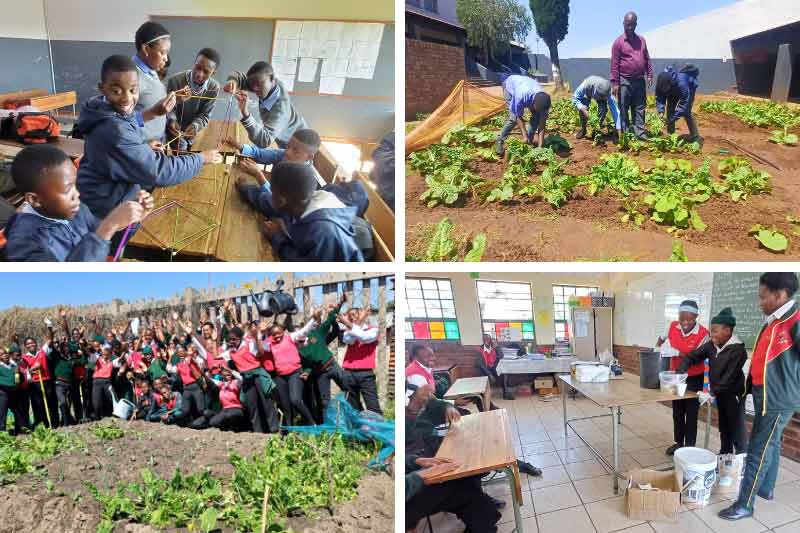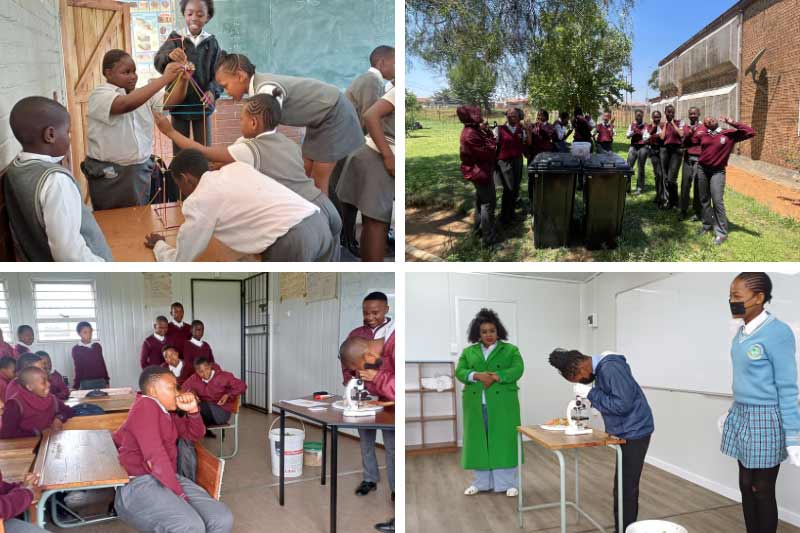Pictured above: (top left) Thuthukani P.S engaging in an ice breaker activity; (top right) Mehlwane S.S celebrating receiving their waste project resources; (bottom right) Amandla P.S learners observing food waste using the microscope; and (bottom left) Impilo P.S learners observing food waste using the microscope.
During the week of 20–24 October 2025, WESSA conducted a support implementation session with Glencore-funded schools in the Ogies and Kriel areas of eMalahleni. The visit focused on helping schools address food waste management as part of the project’s circular economy focus, empowering learners to turn everyday waste into valuable resources.
The session began with a fun icebreaker activity that encouraged learners to reflect on the limited nature of natural resources and the importance of applying the 3Rs: Reduce, Reuse, and Recycle, to use materials more efficiently and reduce waste.
Learners were then introduced to Bokashi, a product that uses microorganisms to ferment food waste, creating nutrient-rich compost. Using microscopes, they observed the fungi and bacteria in action, an engaging hands-on experience that linked directly to their Natural Sciences curriculum and deepened their understanding of ecological processes.

Pictured above: (top left) Lehlaka Combined School learners on an Ice Breaker activity and (top right) learners harvesting at their school garden; (bottom right) Sukumani P.S learners using bokashi to ferment food waste and (bottom left) celebrating a planting session at their extended garden.
In addition to the week’s activities, Sukumani Primary School and Lehlaka Combine School proudly showcased their ongoing food security projects, expanding their school gardens which continue to benefit their communities. To further support these initiatives, the schools received waste resources to enhance their composting and gardening efforts.
The week’s activities reflected the project’s core goal, to promote environmental responsibility, reduce waste, and strengthen food security within school communities through practical, science-based learning.

